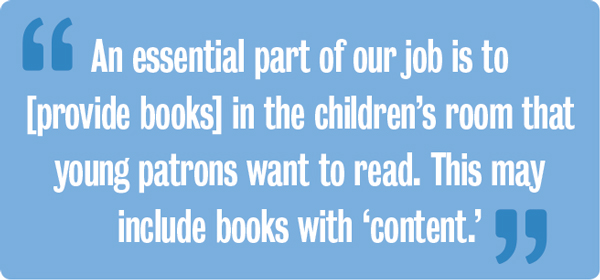Alexie and Asher Redux | Scales on Censorship
How much do authors’ reputations drive book challenges?
I just looked at the American Library Association’s (ALA) 10 Most Challenged Books list for 2017. What a surprise to see that Jay Asher’sThirteen Reasons Why and Sherman Alexie’s The Absolutely True Diary of a Part-Time Indian are number one and two on the list. Do you think that the negative news stories about the writers of these books have caused them to remain at the top of the list?
I haven’t seen the actual individual challenges to any of the titles on the list for 2017 Top 10 Most Challenged Books. Many school and public libraries facing challenges ask for anonymity when they file a report with ALA. My bet is that most bringing challenges to these two books did so because of the topics and themes. I seriously doubt that censors have even read about the allegations you have referenced. The novels should be defended regardless of why they have been challenged.
 I’m a children’s librarian in a large public library system. I was at a dinner party that included librarians, teachers, booksellers, and writers. A bookseller was sitting across from me and I could hear her conversation with those on either side of her. She said, “I shelve any books with ‘content’ in the teen section because I don’t want parent complaints.” What should I have said to her?
I’m a children’s librarian in a large public library system. I was at a dinner party that included librarians, teachers, booksellers, and writers. A bookseller was sitting across from me and I could hear her conversation with those on either side of her. She said, “I shelve any books with ‘content’ in the teen section because I don’t want parent complaints.” What should I have said to her?
How disturbing that a bookseller would submit to such practices. I suspect this confuses many parents. I wonder where the bookstore owner puts books such as those from the “Captain Underpants” and “Diary of a Wimpy Kid” series? I know you didn’t want to cause an issue at a dinner party, but I would have said, “An essential part of our job at the public library is to make books available in the children’s room that young patrons want to read. This may include books with ‘content.’ ” You could have also told her that children’s librarians consider the age recommendations offered by review sources when shelving titles.
Not too long ago, I was in a bookstore and was puzzled to see that it featured three sections for young readers: children, teen, and young adult. I asked the owner how they distinguished between books for teens and young adults. He said the teen books may be more appropriate for middle school, and books with “tough topics” go in the young adult section. I asked how they defined “tough topics” in this context. He mentioned issues including teen suicide, drug and alcohol abuse, and sex and sexuality. This is an alarming practice, but bookstores have the right to run their businesses the way they choose. However, I think it may cause censorship issues that they believe they are avoiding.
Each year, my elementary school participates in our state’s children’s book award program. It really motivates the students to read. This year, a parent of a third grader has complained about two books on the list. My principal wants to avoid any type of controversy and declared that the school cannot participate in this program next year. What do you think I should do?
I don’t know how your state book award program is run, but in most states, children are only required to read a certain number of titles on the list to be able to cast a vote. (In South Carolina, they must read three of the 20 nominees.) Make sure that the parent and the principal understand that these books are selected by a group of professionals who have read every title under consideration. Their selection considers all ages within the scope of the program and includes titles that represent various interests. Many states maintain a website that provides parents and educators with the information they need when deciding whether to become involved.
You probably keep data on how many students in your school participate and the vote count for each title. I suggest that you use the school data, along with that provided by the state initiative, and present it to the principal. Surely he will reconsider once he sees how much the program encourages reading.
 Pat Scales is the former chair of ALA’s Intellectual Freedom Committee. You can send your questions or comments on censorship to her at pscales@bellsouth.net.
Pat Scales is the former chair of ALA’s Intellectual Freedom Committee. You can send your questions or comments on censorship to her at pscales@bellsouth.net.
RELATED
The job outlook in 2030: Librarians will be in demand
The job outlook in 2030: Librarians will be in demand
ALREADY A SUBSCRIBER? LOG IN
We are currently offering this content for free. Sign up now to activate your personal profile, where you can save articles for future viewing






Add Comment :-
Be the first reader to comment.
Comment Policy:
Comment should not be empty !!!